#Frauenliebe und Leben
Explore tagged Tumblr posts
Video
youtube
listening to this at the moment, for Reasons
(Robert Schumann, from Frauenliebe und Leben, Op. 42: No. 4, Du Ring an meinem Finger, sung by Roderick Williams; Andrew West, piano)
I found myself alone, lost
in barren, infinite space
#an unbreakable bond between you that your ring will carry#rtmi#music#schumann#du ring an meinem finger#most of the recordings of this are sung by women#for obvious reasons#but I wanted this one
0 notes
Text
Frei ist der Bursch
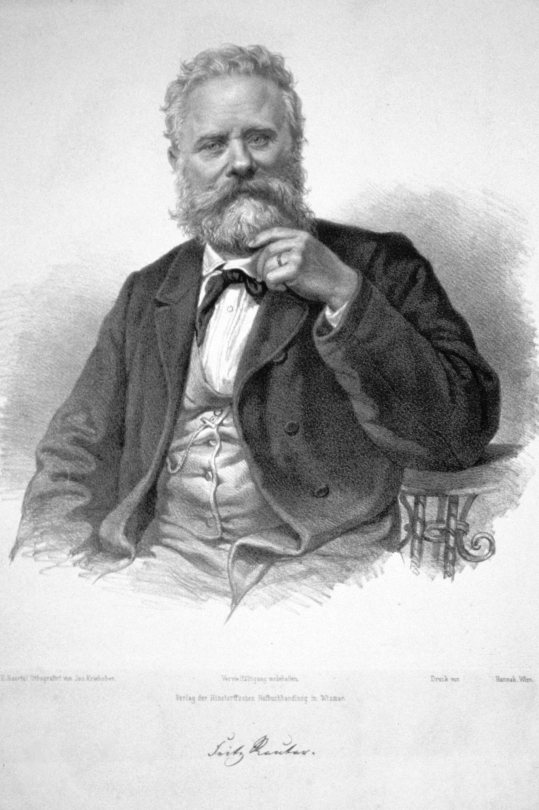
Fritz Reuter, Lithographie von Josef Kriehuber nach Haertel (Quelle)
Fritz Reuter, heute vor 213 Jahren geboren, zählte zu den Nationalisten, die während der Restauration und anschließenden Demagogenverfolgung zu Metternichs Zeiten eingeknastet wurden. Später, als niederdeutscher Volksdichter, notierte er über diese Zeit:
„Und was hatten wir denn getan? Nichts, gar nichts. Nur in unseren Versammlungen und unter vier Augen hatten wir von Dingen geredet, die jetzt auf offener Straße frei heraus geschrien werden, von Deutschlands Freiheit und Einigkeit. Aber zum Handeln waren wir zu schwach, zum Schreiben zu dumm, darum folgten wir der alten deutschen Mode: wir redeten nur darüber.“
Reuter, der bereits zu Lebzeiten vollständig rehabilitiert war, hat auch Bücher über die Besatzung unter den Franzosen geschrieben, wie etwa den Roman "Ut de Franzosentid". Entspräche übersetzt in unsere Tage: "Aus der Amerikazeit".
Folgendes Lied geht auf August Binzer zurück, enthält aber Textzeilen, die man in Reuters "Hanne Nüte un de lütte Pudel" findet:
youtube
"Stoßt an! Jena soll leben! Hurra hoch! Die Philister sind uns gewogen meist sie ahnen im Burschen, was Freiheit heisst frei ist der Bursch!
Stosst an! *** lebe! Hurra hoch! Der die Sterne lenket am Himmelzelt der ist’s, der unsre Fahne hält. Frei ist der Bursch!
Stosst an! Vaterland lebe! Hurra hoch! Seid der Väter heiligem Brauche treu doch denkt der Nachwelt auch dabei. Frei ist der Bursch!
Stosst an! Landesfürst lebe! Hurra hoch!:¦ Er versprach zu schützen das Recht drum wollen wir ihn auch lieben recht. Frei ist der Bursch!
Stosst an! Frauenlieb lebe! Hurra hoch! Wer des Weibes weiblichen Sinn nicht ehrt der hält auch Freiheit und Freund nicht wehrt. Frei ist der Bursch!
Stosst an! Männerkraft lebe! Hurra hoch! Wer nicht singen, trinken und lieben kann den sieht der Bursch voll Mitleid an. Frei ist der Bursch!
Stosst an! Freies Wort lebe! Hurra hoch! Wer die Wahrheit kennet und saget sie nicht der bleibt fürwahr ein erbärmlicher Wicht. Frei ist der Bursch!
Stosst an! Kühne Tat lebe! Hurra hoch! Wer die Folgen ängstlich zuvor erwägt der beugt sich, wo die Gewalt sich regt. Frei ist der Bursch!
Stosst an! Burschenwohl lebe! Hurra hoch! Bis die Welt vergeht am jüngsten Tag seid treu, ihr Burschen, und singet uns nach: Frei ist der Bursch!
Text und Musik: August von Binzer – 1817" (Quelle)
1 note
·
View note
Video
youtube
Helena Rasker & Simon Lepper - Schumann/ from: Frauenliebe und Leben (li...
0 notes
Text
Objective #5 is done, and oh look, it's time for another episode of "Let's Cry Over Robert Schumann."
Guralnick's reading of Frauenliebe und Leben presents it as an expression of Robert's fear that he wasn't good enough for Clara, and holy cow, it's really effective but it HURTS. If you're looking for a man, get a man who loves you like Robert Schumann loved Clara. He was a mentally ill man that just wanted to be worthy of his wife and HE DID HIS BEST, OKAY???
#amy rambles#amy's to do list#schumann seminar#catholic university of america#cua#musicology#music major#musicology makes amy feel things#okay i KNOW the biographical approach isn't always perfect#but when you combine it with other approaches it can really enhance your reading#especially when you have a composer like schumann that left SO MUCH MATERIAL BEHIND#but SERIOUSLY#Y'ALL#I LOVE THESE TWO AND THEIR RELATIONSHIP SO MUCH#WHERE'S MY PERIOD DRAMA ABOUT THE SCHUMANNS????????#AHHHHHHHHHHHH
0 notes
Text
23年コンサート♯20
2月15日 トッパンホール
アンナ・ルチア・リヒター メゾソプラノ
ティル・フェルナー ピアノ
ブラームス
「49のドイツ民謡集」より
谷の底では
姉さん、ぼくたちいつお家に帰るの
あそこの牧場に一軒の家が建っている
静かな夜に
私の思いのすべては
ちょっとかわいい娘を知っているのだが
シューベルト
劇音楽「ロザムンデ」D797より ロマンス「満月は丘の上に輝き」
「糸を紡ぐグレートヒェン」D118
子守歌 D498
「さすらい人の月に寄せる歌」D870
「ただあなたのそばに」D866-2
シューベルト
「春のおもい」D686
「野ばら」D257
「春に」D882
「夕映えの中で」D799
シューマン
「女の愛と生涯」Op.42
いつの間にかメゾソプラノになっていたアンナ・ルチア・リヒター。しなやかだけれども軽い声質ではなかったとはいえ、ちょっとざらっとした渋い声も出ていて驚いた。
「女の愛と生涯」は、歌詞のあまりに古びた女性観が苦手で、めったに聴いていなかったのだが、こうして第8曲を重く見て、それまでの曲を伏線と捉えるような筋立てと聴くと、ひとつの物語として腹落ちできる感じがした。それ��、ティル・フェルナーのピアノがやっぱ��素晴らしかった(とくに第8曲の最後のソロ)。
アンコールにブラームスOp.106-1のセレナーデ。爽やかなユーモアに思わず笑み。
Anna Lucia Richter, M-Sop
Till Fellner, pf
J.Brahms
From "49 Deutsche Volkslieder"
Da unten im Tale / Schwesterlein, Schwesterlein, wann gehn wir nach Haus / Dort in den Weiden steht ein Haus / In stiller Nacht / All' mein' Gedanken / Ich weiß mir'n Maidlein hübsch und fein
F.Schubert
Romance 'Der Vollmond strahlt auf Bergeshöhen' from "Rosamunde" D797 / Gretchen am Spinnrade D118 / Wiegenlied D498 / Der Wanderer an den Mond D870 / Bei dir allein D866-2 / Frühlingsglaube D686 / Heidenröslein D257 / Im Frühling D882 / Im Abendrot D799
R.Schumann
Frauenliebe und leben Op.42
for review
youtube
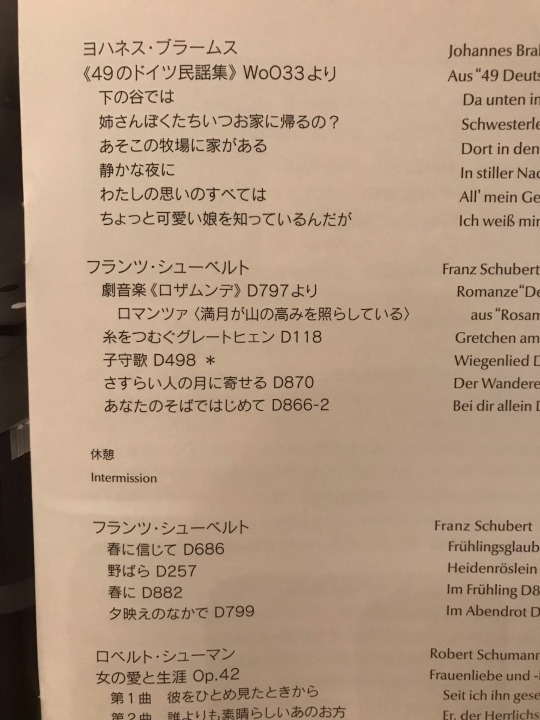
1 note
·
View note
Text
Du Ring an meinem Finger
- Adelbert von Chamisso, 4th piece of his cycle “Frauenliebe und Leben”, music by R. Schumann
https://youtu.be/G9u-uoY1e_Q
youtube

Translation and text from Oxfordlieder
This rendition done by Jessye Norman is by far my favorite. The music composition alone being a wonderful artwork itself already, it’s so easy for musicians to refrain from going over the line in performing this type of works. It will almost always sound nice regardless of whatever you do. However, I find such a vivid embodiment in every word that is sung by Jessye Norman, almost as if they are alive, given a new fresh breath. No word is left singled out, and every syllable is deeply taken-care of.
Probably the most celebrated work of poetry and lied of all time, the whole cycle of “Frauenliebe und Leben” tells the story of the course of a woman’s (love) life from her first meeting, to her lover’s death, and after. The contrast between each poem which depicts different life phases personally takes my heart to such an emotional journey, moving from one phase to another, evoking diverging emotions in each step. Inside this masterpiece, I would consider this fourth poem (moreso as a song) as my personal favorite, most soothing to my soul. This to me speaks of the first stage the woman understands the purity, peacefulness, and immense kindness of love. This moment is the answer to her life-long longing/sehnsucht (just because I love the German word so much), an answer to a childhood dream. A moment where her past desolation is redeemed with the undivided wholeness of sacred love
Now let’s pay an homage to Chamisso and Schumann by listening to the piece!
Unrelated to everything I just wrote, I wish lieder are much more appreciated, like people do operas. There’s such an otherwordly richness to the world of art songs, which is easy to overlook. But damn, my life depends on lieder.
https://youtu.be/G9u-uoY1e_Q
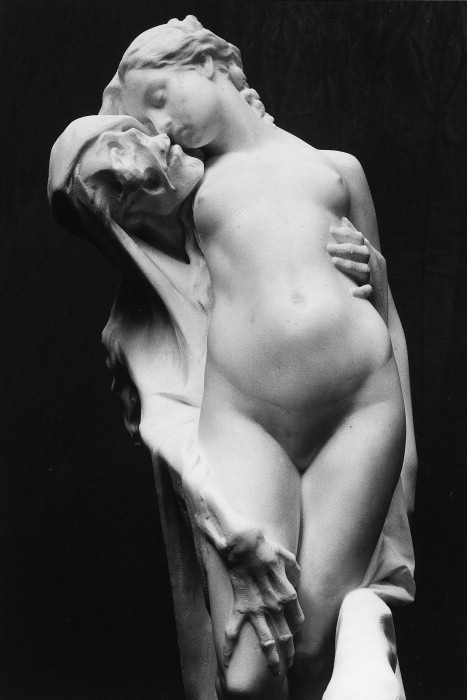

Photo credits from tumblr! I forgot whose blog though.
#classicalmusic#lieder#lied#schumann#poem#poetry#art song#frauenliebe und leben#literature#jessye norman
3 notes
·
View notes
Text
#classical#art song#artsong#lied#lieder#german#Schumann#robert schumann#song cycle#frauenliebe und leben#poetry#mezzosoprano#college#recital
1 note
·
View note
Text
“und leben aktuell”: notes on a lesbian Frauenliebe rewrite
Continuing, in no particular order, my delayed notes on recent concertgoing experiences . . .
On Sunday, March 19, I had the pleasure of attending an innovative dual recital called “Schumann Ghost House” that was presented in a private home by our local artist-led startup opera company, Victory Hall Opera.
In the first half, tenor Will Ferguson sang Schumann’s Dichterliebe while a trio of mostly-silent actors portrayed a teenaged Will and his parents, playing out a day in the life of a family wherein the son came out as gay and the father didn’t take it well. In the end, the son (young Will) turned to music, specifically the music of Schumann, as a source of solace and sense of identity. This was, I think, my first experience of a staged recital and I liked it a lot; however, I have more to say about the second half of the program, mostly by virtue of the fact that I am much more familiar with Frauenliebe than with Dichterliebe.
In the second half, mezzo-soprano Brenda Patterson accompanied herself on the piano while singing a new variation on Schumann’s song cycle Frauenliebe und -leben. As she explained, she loved the music for this cycle and had known it her whole life, but some of the lyrics by Adelbert von Chamisso [PDF] are problematic for a modern woman (”Laß mich in Andacht, Laß mich in Demut, Laß mich verneigen dem Herren mein”—basically, “let me bow down to my husband”), and moreover, as a lesbian woman, she found the Frauenliebe depiction of nineteenth-century heterosexual courtship and marriage especially inapplicable to her own life. So, she took several poems by the contemporary lesbian poet Emily Moore and—with the blessings of the poet, who is a personal friend of Brenda’s—fitted them to the music of the Frauenliebe cycle. This new mashup was advertised under the title “und leben aktuell,” which I like for the ambiguity of the German word “aktuell” meaning both “of today, of the present time” and “real, factual.”
I’ve listened to Frauenliebe und -leben many times now. In 2015, I heard it performed in recital by Susan Graham, Renée Fleming, Sarah Connolly, and Dorothea Röschmann all in one year, which was a pretty interesting opportunity for compare-and-contrast. And I came to Brenda Patterson’s recital having just, within the previous eight days, heard the cycle performed twice—and exquisitely—in live recital by Sarah Connolly, so I had the mold of Frauenliebe with the original Chamisso texts very strongly impressed on my mind as I listened to the Moore/Patterson rewrite.
On the whole I liked “und leben aktuell” a lot and I thought it was a great experiment in adaptation, definitely worthy of being repeated for another audience at some future recital or festival. As the project was so personal to Brenda Patterson, I do not know whether the adapted Emily Moore lyrics would be available for licensing, but I'd love to see other singers—especially other lesbian singers—take the refitted cycle for a spin.
As you would expect, there were many differences between the Chamisso texts and the Moore replacements. In some cases I thought the differences were an even trade, making the songs different but neither better nor worse. I felt this way about the first three songs in the cycle where Patterson and Moore chose poems evoking the tentativeness-blossoming-into-exhilaration of young love.
In other cases I felt that something was either added or lost by the substitution of Moore’s texts.
The fourth and fifth songs were probably my favorite examples of adding something satisfying to the Frauenliebe model. The fourth song, “Du Ring an meinem Finger,” was refitted with Moore’s “Coney Island Epithalamium,” in which a couple rides the Wonder Wheel, a large Ferris wheel, while holding hands and “squeezing the band / You gave me as our car rose to full height.” The slow rhythms of Schumann’s setting were pleasingly apt for suggesting the slow up and down swooping of a Ferris wheel car. In the fifth song, Chamisso’s “Helft mir, ihr Schwestern” was substituted with Moore’s “Auld Lang Syne,” in which a toast is raised to the happy couple’s former lovers and crushes (e.g. “To the jeune fille who broke my heart in France, / the tramp who warmed your lap and licked your ear,” etc.). I thought this was a brilliant re-imagining of “Helft mir, ihr Schwestern,” in which the speaker calls upon her circle of female friends to help her prepare for her wedding; she mentions her mixed feelings of excitement and pre-wedding jitters, joy and sadness to be leaving the company of her “sisters” for marriage. “Auld Lang Syne” makes a beautiful point about how the people in our past have—through better and worse—gotten us to where we are today, and it deftly shifts the homosocial "Schwestern" of Chamisso's poem to a motley lesbian "sisterhood."
In other places I felt that the new texts did not correlate with the emotional tones of the music, and that felt like a loss to me. For one example, in the sixth song of Schumann’s cycle, “Süsser Freund, du blickest,” there is a moment of acute emotional stress on the word Wiege, meaning “cradle.” The speaker has taken a couple verses to work herself up to delivering the most momentous news of her life: this is the song in which she tells her husband that she is pregnant. The message only becomes clear and unambiguous when she says in tender awe, barely able to get the words out, that soon there will be a cradle at her bedside. There is no correlate climactic moment in the warm and fuzzy excerpt of Moore’s “Twenty Weeks” substituted for “Süsser Freund.” Similarly, I felt that something was missing from the last song in the cycle. Schumann’s setting for Chamisso’s poem “Nun hast du mir den ersten Schmerz getan” starts like a hammer blow on “Nun” (”Now,” signaling a sudden shift in the speaker’s relationship with her beloved) and can be sung to convey great anger and pain. The fragment of Moore’s “To M.C., To Read in the Rockies” chosen for “und leben aktuell,” however, evokes the speaker’s absence from the addressee in vague and indirect terms; the tone is wistful, never angry. As a song heard in isolation it may be fine, but in the setting of a rewritten Frauenliebe, I missed the sharp outburst at the end of the cycle.
Then again—as an astute friend pointed out—perhaps I should view this rewrite as a subversion of the dead lesbians trope.
That would be another welcome subversion on top of the one that made me laugh as soon as I opened the program: the baby-bouncing song “An meinem Herzen, an meiner Brust” is substituted by a poem titled “I Don’t Want to Hold Your Baby.” Well played, Victory Hall.
#Victory Hall Opera#Frauenliebe und Leben#und leben aktuell#brenda patterson#emily moore#schumann#recital#verdiprati's live music adventures
14 notes
·
View notes
Photo

Știri: Dezbatere și recital de voce și pian ”In memoriam Pascal Bentoiu” la Londra (7 aprilie 2017) Vineri, 7 aprilie 2017, de la ora 19.00, la sediul Institutului Cultural Român de la Londra…
#concert de muzică clasică#cultură#Diaspora#Eminesciana II#Evenimente românești în Diaspora#Frauenliebe und Leben#George Enescu#Institutul Cultural Român#Institutul Cultural Român de la Londra#Ioana Bentoiu#Irina Nițu#Lia Vieru Conta#Londra#Mihai Cosma#Mihai Eminescu#Muzeul Național “George Enescu”din București#muzică clasică#Pascal Bentoiu#Pascal Bentoiu - Viața și Opera#Pascal Bentoiu – His Life and Works#recital de voce și pian#Regatul Unit al Marii Britanii și Irlandei de Nord#Richard Whitehouse#Robert Schumann#români de pretutindeni#români din Diaspora#români în Regatul Unit#Sept chansons de Clément Marot#știri
0 notes
Text
#i was vaguely thinking maybe i could sing a thing for my class but the piece i know best in german is tchaikovsky‚ which seems a little off#anyway i was trying to think of what Actual Lieder i knew even a little#this is not one i know well enough to do but it’s extremely beautiful and#alice coote#does an extraordinarily beautiful job of it#anyway! long story short: you should listen to this#music#i used to be a singer#etc
6 notes
·
View notes
Photo
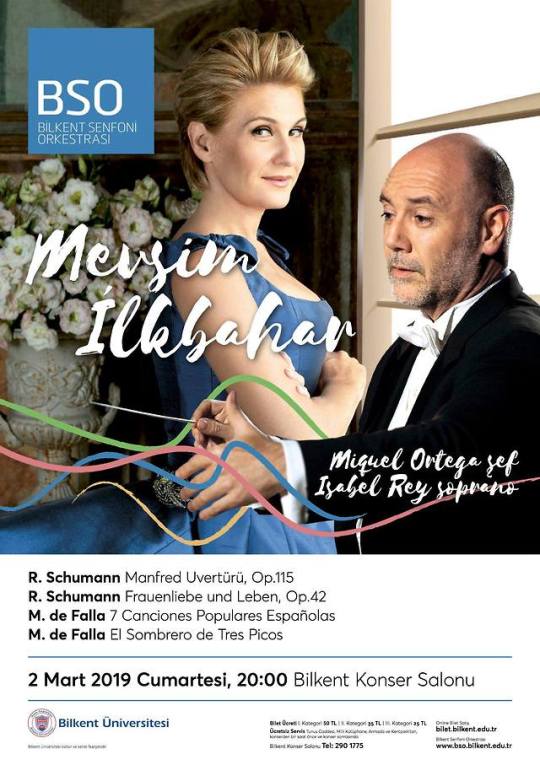
Bilkent Senfoni Orkestrası
2 Mart 2019 Cumartesi, 20:00 Bilkent Konser Salonu
Schumann | Manfred Uvertürü
Schumann | Frauenliebe und Leben
de Falla | 7 Canciones Populares Españolas
de Falla | El Sombrero de Tres Picos
2 notes
·
View notes
Text
Widerständig und lesbisch
«Fräulein Doktor. Das Leben der Chirurgin Marie Lüscher» Lesung und Gespräch mit Autorin Denise Schmid über eine Berufskarriere in einer Männerwelt und eine Frauenliebe ausserhalb von Normen.Freitag 18. November 2022, 20 Uhr im Comedyhaus/Theater a.part, Albisriederstr. 16, 8003 Zürich, Bar ab 19 Uhr. Tickets 15.- (reduziert 10.-)Organisiert vom Sappho-Verein – Lesbengeschichte der…
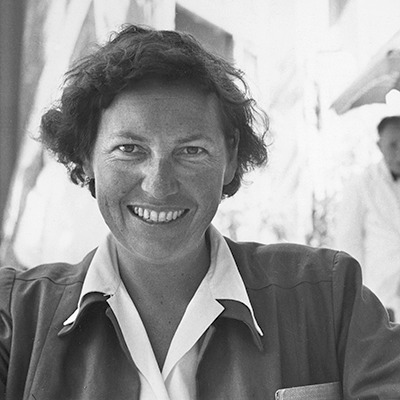
View On WordPress
0 notes
Video
youtube
Years ago I didn’t like the music of Schumann. Now.....oh my goodness, now.....I just melt.....
Lorraine Hunt Lieberson - Seit ich ihn gesehen Schumann - Frauenliebe und-leben, Op. 42. Julius Drake, piano.
16 notes
·
View notes
Text
Objective #6 is done. I think scholarship on the postlude of Frauenliebe und Leben is beginning to sound like a bit of a broken record.
#amy rambles#amy's to do list#schumann seminar#catholic university of america#cua#musicology#music major#not to say that the class is covering ALL the scholarship on this postlude#but yeah the whole point of scholarship is to add new ideas to the table#and if no one can contribute new ideas about the postlude i'm not sure why they're even bringing it up
0 notes
Text
CHRISTIAN GERHAHER

SCHUMANN: ALLE LIEDER
Las canciones de Robert Schumann no solo son uno de los puntos álgidos del romanticismo musical, sino que también representan una unión única entre letra y música. Schumann: Alle Lieder presenta 299 canciones en 11 CD: a la venta el viernes 10 de septiembre.
Consíguelo AQUÍ
Como uno de los principales cantantes de lieder de nuestros días, Christian Gerhaher ha ido aún más lejos que Fischer-Dieskau y, junto con su brillante pianista Gerold Huber, ha hecho realidad uno de sus más queridos deseos tras más de tres décadas de intenso compromiso con la música de Schumann.
Su edición en 11 CD de Robert Schumann: The Complete Songs saldrá a la venta el 10 de septiembre de 2021 y estará disponible también en formato digital. Una coproducción entre Sony Classical y BR-KLASSIK, con el apoyo del Centro Internacional de la Canción de Heidelberg, iniciado por el festival de música Heidelberger Frühling, este conjunto incluye 299 canciones, casi toda la producción de lieder del compositor.
El enfoque adoptado por Christian Gerhaher y Gerold Huber es más artístico y biográfico que enciclopédico.
Schumann se centró en la composición de lieder durante dos períodos de su vida: 1840-41 y 1849-53. Por analogía con este enfoque, los seis primeros CDs están dedicados al primer período, los cinco restantes a los últimos años.
Dentro de esta disposición, Gerhaher y Huber han evitado conscientemente un enfoque puramente cronológico o puramente temático, con el objetivo de preservar lo que para el propio Schumann era la unidad esencial de sus ciclos de canciones y de insertar las canciones individuales dentro de un contexto interno cronológico y temático.
Las canciones que Schumann escribió durante su juventud y que no se publicaron en vida no se han incluido en este proyecto. También se han omitido los melodramas y las obras que se apartan de la forma clásica de la canción o que forman parte de obras mucho más largas.
A raíz de estas grabaciones, Gerhaher también ha sometido sus anteriores ediciones de Schumann a una revisión crítica. La mayor parte de las canciones que aparecieron en sus anteriores álbumes Dichterliebe y Melancholie en 2004 y 2007 respectivamente han sido regrabadas (entre estas canciones están Dichterliebe op. 48 y los Sechs Gedichte und Requiem op. 90); en cambio, otras grabaciones anteriores, como los Eichendorff Liederkreis op. 39, han sido incorporadas al presente conjunto.
Este proyecto único adquiere un atractivo adicional gracias a las nuevas grabaciones de los ciclos para voz femenina, los dúos y tríos raramente escuchados y las obras para varias voces como el Spanisches Liederspiel op. 74, en el que Schumann elevó el medio a un nivel artístico totalmente nuevo.
Entre los otros eminentes artistas que aparecen en esta edición están Sibylla Rubens, Camilla Tilling, Julia Kleiter, Wiebke Lehmkuhl, Martin Mitterrutzner, Christina Landshamer y Anett Frisch.
El extenso libreto incluye todos los textos de las canciones junto con una introducción del musicólogo alemán Laurenz Lütteken, mientras que el propio Gerhaher ha plasmado sus reflexiones personales sobre cada una de las canciones. Un índice detallado completa la documentación.
Estas grabaciones han contado con el apoyo del Centro de Investigación Robert Schumann de Düsseldorf.
CONTENIDO DE LA CAJA
CD 1
Liederkreis nach Gedichten von Heinrich Heine, op.24 (1840)
Romanzen und Balladen, Vol. IV, op. 64 (1840)
Zwölf Gedichte aus Friedrich Rückerts „Liebesfrühling“, op. 37 (1840/41)
CD 2
Myrthen – Liederkreis, op.25 (1840)
Lieder und Gesänge, Vol. II, op. 51 (1840)
Drei Gedichte von Emanuel Geibel, op. 30 (1840)
CD 3
Liederkreis von Joseph Freiherr von Eichendorff, op.39 (1840)
Drei Gesänge, op. 31
Drei Gedichte von Emanuel Geibel, op. 29
Romanzen und Balladen, Vol. III, op. 53 (1840)
CD4
Frauenliebe und -leben, op. 42 (1840)
Lieder und Gesänge Vol. I, op. 27 (1840)
Dichterliebe – Liederzyklus aus dem „Buch der Lieder“ von Heinrich Heine, op. 48 (1840)
CD5
Fünf Lieder, op. 40 (1840)
Drei Duette, op. 43 (1840)
Zwölf Gedichte von Justinus Kerner – Eine Liederreihe, op. 35
Fünf Lieder und Gesänge, op. 127 (1840)
CD6
Romanzen und Balladen Vol. I, op. 45 (1840)
Belsatzar, op. 57 (Heinrich Heine, 1840)
Sechs Gedichte aus dem Liederbuch eines Malers, op. 36 (1840)
Vier Duette, op.34 (1840)
Romanzen und Balladen Vol. II, op. 49 (1840)
Vier Gesänge, op. 142 (1840)
CD7
Liederalbum für die Jugend, op. 79 (1849)
Drei Gedichte aus den Waldliedern von Gustav Pfarrius, op. 119 (1851)
CD8
Lieder und Gesänge Vol. IV op. 96 (1850)
Der Handschuh op. 87 (Friedrich Schiller, 1849)
Lieder und Gesänge, Vol. III op. 77 (1850)
Drei Gesänge aus Lord Byrons „Hebräischen Gesängen“ op. 95 (1849)
Lieder und Gesänge aus Goethes „Wilhelm Meister“ op.98a (1849)
CD9
Spanisches Liederspiel op. 74 (1849)
Fünf heitere Gesänge op. 125 (1850)
Spanische Liebeslieder op. 138 (1849)
CD10
Sechs Gesänge op. 107 (1851)
Sommerruh WoO 7 (Christian Schad, 1849)
Mädchenlieder von Elisabeth Kulmann op. 103 (1851)
Minnespiel aus Friedrich Rückerts „Liebesfrühling“ op. 101 (1849)
Vier Duette op. 78 (1849)
Sieben Lieder von Elisabeth Kulmann op. 104 (1851)
CD11
Drei Gesänge op. 83 (1850)
Drei Lieder op. 114 (1849)
Gedichte der Königin Maria Stuart op. 135 (1852)
Sechs Gesänge von Wilfried von der Neun op. 89 (1850)
Vier Husarenlieder von Nikolaus Lenau op. 117 (1851)
Sechs Gedichte von Nikolaus Lenau und Requiem op. 90 (1851)
0 notes
Video
youtube
Lorraine Hunt Lieberson - Seit ich ihn gesehen (Since I saw him) Schumann - Frauenliebe und -leben, Op. 42 Julius Drake, piano
1 note
·
View note